Last Thursday May 31 took place in Brussels the 3rd edition of the Social Networking Night, an activity organized by the Official Spanish Chamber of Commerce in Belgium and Luxembourg in the framework of its program Empleo BeLux. The main objective of this activity is to optimize the tools available in BeLux for the job search.The event took place at the BNP Paribas Fortis facilities in Brussels.
 The Secretary General of the Chamber, María Catalán, thanked all the attendees, speakers and sponsor BNP Paribas Fortis, and presented the program of the event and the website Empleo BeLux.
The Secretary General of the Chamber, María Catalán, thanked all the attendees, speakers and sponsor BNP Paribas Fortis, and presented the program of the event and the website Empleo BeLux.
Then the first presentation took place, in which Marisa Jiménez Martín, Director EU Affairs and Deputy Head of Office of Facebook, explained how to make a career in public policy and regulatory affairs, focusing on the interviews. In a job interview, the interviewee is analyzed according to their leadership and the opinion creation they have, in addition to the training and experience acquired.
Subsequently, Luis Planas Herrera, Policy Assistant to the Director-General – DG ENV, presented the different possibilities and options available to work for the European Union. In the European Union there is a demand for all types of profiles, but applicants must be clear about their motivations, besides knowing that 95% of the jobs are between Brussels and Luxembourg.
Among the different interventions, the attendees had the opportunity to participate in three workshops. In the first one, Marta Cela, life coach, highlighted the importance of personal values when looking for a job and when doing interviews. On the other hand, networking expert Ángel Rebollo, Senior European Affairs Consultant and director of the Atrevia office, gave very useful advices to make networking and explained some case studies. Finally, Noelia Cortés advised the participants on the writing of the CV and the motivation letter when looking for a job.
Mark de Smedt, Regional Head of The Adecco Group Northern Europe, explained how the labor market is and the main profiles currently demanded, emphasizing the employment opportunities in BeLux because of the low unemployment rate.
On the other hand, María Casado, director of the Associated Center of the UNED in Brussels, highlighted the importance of continuing education and presented the different opportunities to study that has the university at distance.
This year the success story was led by Marian Durá, from EasyBabyTrip. Marian is a Spaniard who moved to Brussels and for different reasons decided to start and create her own business. Marian, underscoring the difficulties and the advantages, encouraged the attendees to undertake and pursue their objectives, since it is very satisfying to be able to make all your business ideas come true.

María Catalán also presented a new project of the Chamber called “Emprende BeLux“, which is focused on entrepreneurs. This program offers the opportunity to develop the necessary skills to promote a business idea, while the entrepreneur exchanges ideas and collaborates with other entrepreneurs.
Next, Ángela Ustarroz, Country Manager in Belgium, presented the Integral Program of Qualification and Employment (PICE) which is designed to improve the employability of young people through transnational mobility in the territory of the European Union.
Finally, Arturo Ibáñez explained the main characteristics of the Erasmus Program for Young Entrepreneurs, a European program of transnational exchanges that offers new entrepreneurs and people who want to create a business the opportunity to learn from experienced entrepreneurs who run small businesses in other participating countries, which the Chamber is a local point of contact
To finish, the attendees enjoyed a networking cocktail, in which they could interact with the speakers, the experts and other participants.
#NetworkingBeLux
[AFG_gallery id=’82’]

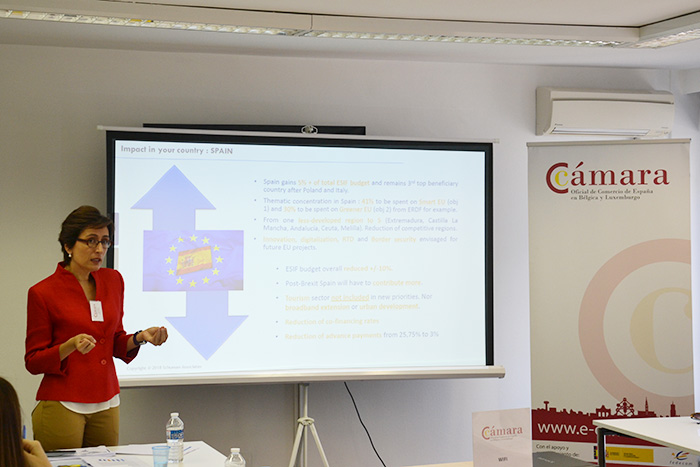 As can be seen from the title of the conference, the exhibition focused on the new multi-year financial perspectives of the EU, which are prepared every seven years. This budget proposal is the first that is made without the participation of the United Kingdom.
As can be seen from the title of the conference, the exhibition focused on the new multi-year financial perspectives of the EU, which are prepared every seven years. This budget proposal is the first that is made without the participation of the United Kingdom.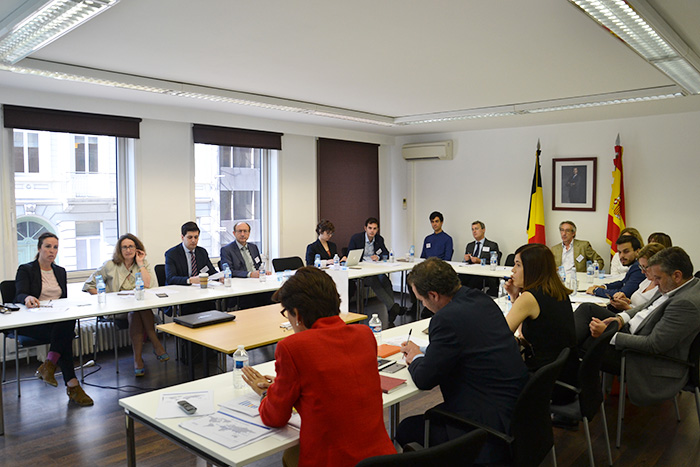
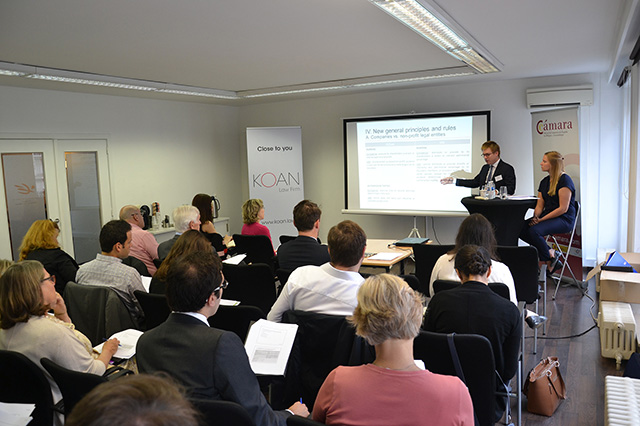
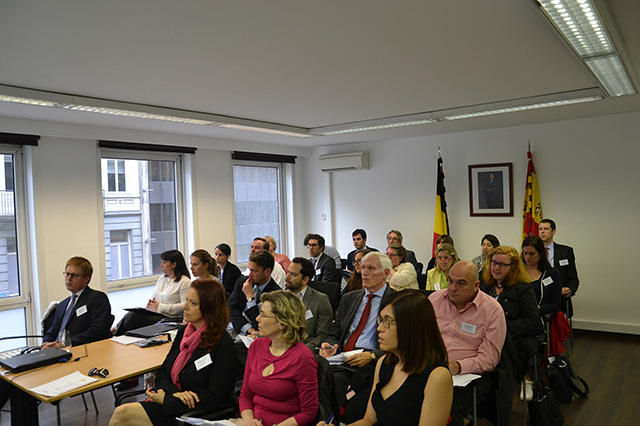
 Firts of all, Andrea Oriol, delegate of LaLiga in Benelux, gave a few words of welcome to the attendees and presented the work of LaLiga and the clubs that compose the competition.
Firts of all, Andrea Oriol, delegate of LaLiga in Benelux, gave a few words of welcome to the attendees and presented the work of LaLiga and the clubs that compose the competition.
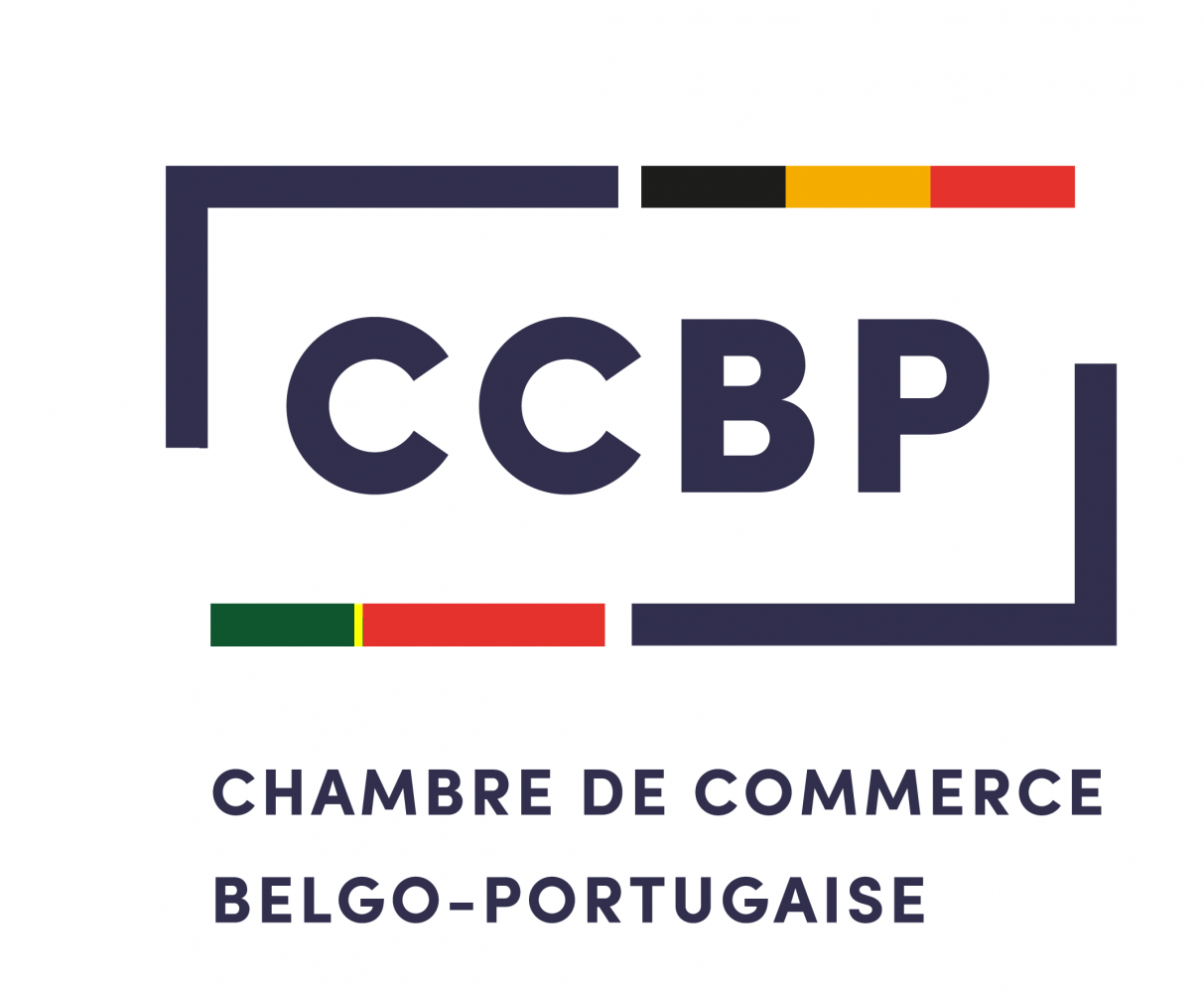
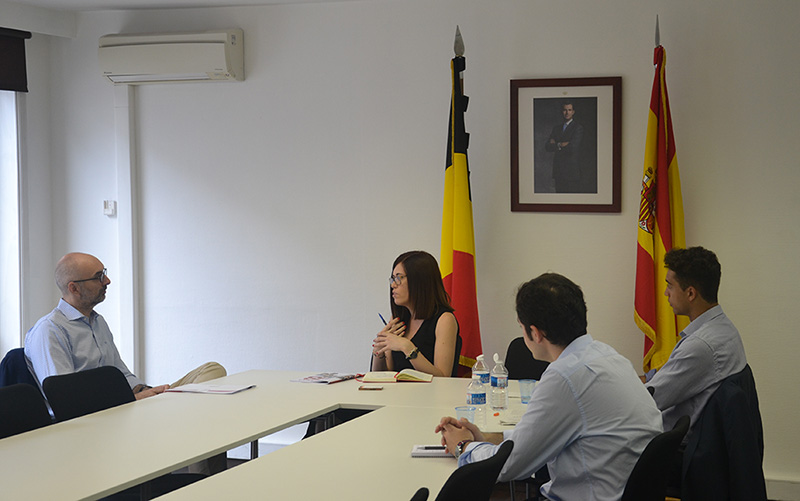
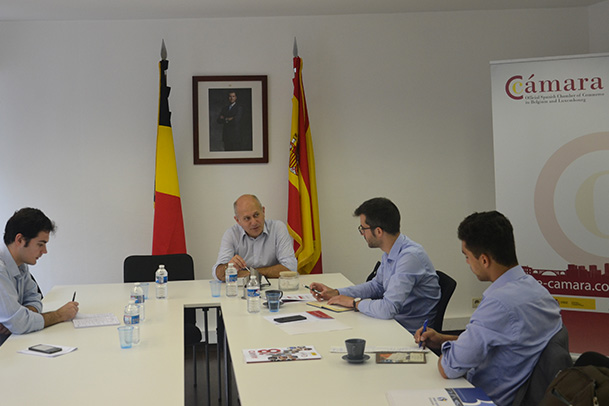 Catholic University of Louvain, the Technology Transfer Office of Louvain (Sopartec) and the Brussels-Capital Region. The incubator focuses on the support of companies oriented to life science research.
Catholic University of Louvain, the Technology Transfer Office of Louvain (Sopartec) and the Brussels-Capital Region. The incubator focuses on the support of companies oriented to life science research. The Secretary General of the Chamber, María Catalán, thanked all the attendees, speakers and sponsor BNP Paribas Fortis, and presented the program of the event and the website Empleo BeLux.
The Secretary General of the Chamber, María Catalán, thanked all the attendees, speakers and sponsor BNP Paribas Fortis, and presented the program of the event and the website Empleo BeLux.





